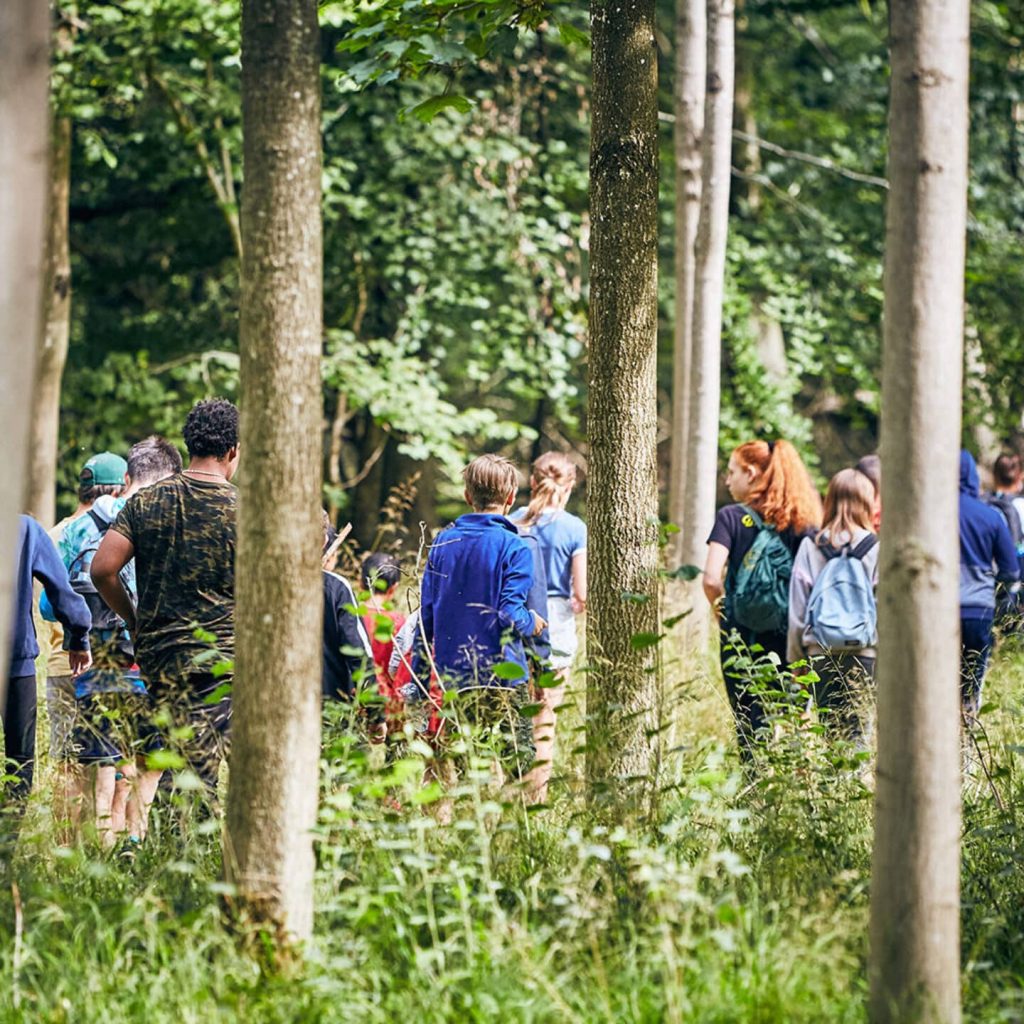Survival Adventures: Pathways to Learn Skills in Wild Environments

Discovering Survival Skills in Nature
Every wanderer dreams of conquering the untamed wilderness, but only a few prepare for the challenges it presents. In the heart of nature, survival adventures provide unparalleled opportunities to learn essential skills that are beneficial even beyond the great outdoors. As we face an increasingly urbanized world, reconnecting with nature can help foster self-sufficiency, resilience, and a profound respect for the environment. Embracing these key skills can radically transform one’s relationship with nature, empowering individuals to thrive in unforeseen circumstances.
Essential Wilderness Skills
- Navigation Techniques: Being lost in the wild can provoke panic, but understanding how to read maps and utilize a compass can turn confusion into clarity. Learning about topographical maps, which detail the terrain’s elevations and contours, equips adventurers with knowledge about the landscape, enhancing their ability to navigate through unfamiliar areas. Moreover, learning to use celestial navigation by observing stars can also expand one’s skill set.
- Foraging Skills: Identifying edible plants is a skill that significantly broadens one’s survival toolkit, but it requires keen observation and knowledge. Programs that teach foraging emphasize recognizing wild herbs, berries, and mushrooms to gather nutritious meals in the wild while avoiding toxic plants. For example, the difference between edible chanterelle mushrooms and the poisonous look-alike can mean the difference between a safe sustenance and a medical emergency.
- Fire Craft: Fire is essential not just for warmth, but also for cooking and signaling for help. Proficiency in building sustainable fires using natural resources, such as dry leaves, bark, or even friction techniques, is critical. Learning how to maintain and manage fire in different weather conditions illustrates respect for fire’s power and utility.
- First Aid Awareness: In isolated settings, knowing how to administer basic first aid can save lives. Workshops often cover essential care practices, like treating wounds, preventing infections, and responding to snake bites, teaching participants the importance of being prepared for emergencies where professional help might not be readily available.
- Water Sourcing: Finding and purifying water in the wild can often be the difference between life and death. Participants learn to identify natural water sources, such as streams and lakes, and methods like boiling and UV exposure to purify water, which is vital knowledge for any survivalist.
These skills are not just essential for adventurers but also vital for anyone seeking a deeper connection with nature. Engaging in survival training can lead to transformative experiences. It heightens awareness of one’s surroundings, develops problem-solving abilities, and fortifies mental resilience—qualities that are beneficial in both wilderness settings and everyday life.
Opportunities Across the United States
Across the United States, numerous programs and workshops are dedicated to wilderness survival. Institutions like REI and various outdoor schools offer courses ranging from weekend workshops to week-long immersive experiences. These programs facilitate a hands-on approach to learning while providing guidance and support from experienced instructors who can share invaluable insights from their own adventures.
Whether you’re a novice eager to step outside your comfort zone or a seasoned outdoors enthusiast looking to enhance your toolkit with refined skills, survival adventures present unique pathways toward personal growth and mastery. They not only prepare you for the unexpected in nature but also enrich your everyday life by teaching you to face challenges with confidence.
DON’T MISS: Click here to discover amazing culinary tours

Unlocking Skills for Life in the Great Outdoors
Survival adventures offer an unparalleled blend of thrill and education, immersing participants in the art of thriving in challenging wilderness environments. These experiences are not only thrilling; they serve as essential training grounds for developing skills that can be applied in various aspects of life. In a time where most of our activities are confined within urban landscapes, engaging with nature provides a welcome opportunity to rediscover basic yet vital skills that strengthen our connection to the world around us.
Key Survival Techniques to Master
To dive deeper into the wilderness experience, individuals must grasp fundamental survival skills that enhance their ability to navigate through unpredictable scenarios. Here’s a closer look at several key techniques everyone should consider mastering:
- Navigation Essentials: One of the foremost skills in survival is the ability to navigate with confidence. Participants are taught how to read and interpret both physical maps and digital devices, ensuring they can traverse through dense woods or rugged terrains. Moreover, understanding how to find one’s bearings using the sun and stars not only fosters independence but also cultivates a respect for ancient navigational traditions.
- Foraging Fundamentals: The wilderness is a treasure trove of edible resources. Learning to identify safe, edible plants, herbs, and fungi is a cornerstone of survival knowledge. Various programs highlight the differences between safe and toxic flora, with instructors often emphasizing the importance of experience and caution to avoid life-threatening mistakes. For instance, recognizing the native pawpaw fruit can provide a sweet and energy-boosting snack when foraged correctly.
- Building a Fire: Mastering the skill of fire creation is essential for warmth and cooking in the wild. Survival courses often cover various techniques, from using a flint to building primitive fire pits. Each method requires patience and practice, making fire-building a crucial skill that not only warms but also serves as a beacon of hope in emergencies.
- Essential First Aid Skills: In the wilderness, access to professional medical assistance can be limited. Therefore, understanding basic first aid principles is non-negotiable. Training typically includes skills such as properly dressing wounds, managing hypothermia, and responding to insect bites or stings. Equipped with this knowledge, adventurers can act swiftly to safeguard their health and that of their companions.
- Water Purification Techniques: Water is a vital resource, yet finding potable water can be a challenge in many environments. Wilderness survival training often focuses on locating reliable water sources and methods to purify these resources effectively. Techniques include filtering through natural materials to remove debris and boiling or using sunlight to purify water, thus ensuring safety when drinking from streams or lakes.
These skills are not merely academic; they provide tangible benefits that extend beyond survival scenarios. Each participant emerges with heightened self-awareness, improved decision-making capabilities, and a greater appreciation for the complexities of nature. By cultivating these key skills, adventurers can confront life’s unpredictable challenges with confidence and resilience, fostering a profound transformation in both wilderness settings and daily life.
Joining a Survival Adventure
As interest in survival skills grows across the United States, organizations such as Adventure Out and Wilderness Awareness School are making strides in offering accessible survival courses. Each program is structured to ensure participants walk away not just with knowledge, but with a certificate of achievement that recognizes their commitment to mastering essential survival skills. For beginners and seasoned adventurers alike, these experiences are gateways to unlocking personal growth and resilience in the face of nature’s unpredictability.
| Advantages | Description |
|---|---|
| Enhanced Problem Solving | Participants develop critical thinking and adaptability through real-life challenges. |
| Physical Empowerment | Engagement in outdoor activities fosters fitness and stamina, vital for survival situations. |
In the context of “Survival Adventures: Pathways to Learn Skills in Wild Environments,” the advantages outlined in the table above reveal core benefits of immersive experiences. One notable aspect is the enhancement of problem-solving skills. Participants learn to navigate unpredictable scenarios, sharpening their decision-making capabilities in the face of adversity. Such experiences not only fortify personal resilience but also instill a profound appreciation for nature’s challenges.Equally significant is the aspect of physical empowerment. Engaging in survival training enables participants to build stamina and strength while mastering the intricacies of surviving in the wild. This physical aspect encourages a deeper connection with nature and equips individuals with the confidence necessary to face any outdoor endeavor. Each of these advantages showcases the transformative potential of survival adventures, inspiring individuals to explore and embrace the wilderness with newfound skills.
DISCOVER MORE: Click here to dive into thrilling cycling adventures
The Transformative Impact of Survival Adventures
Engaging in survival adventures transcends mere skill acquisition; it serves as a transformative journey that fosters deep personal growth and environmental appreciation. Many who embark on these excursions report profound changes in perspective, bolstered self-confidence, and a renewed connection with the natural world. In this section, we delve into the psychological and social benefits derived from participating in survival challenges, as well as exploring community-based initiatives that promote collective learning.
The Psychological Benefits of Wilderness Training
Immersing oneself in the wilderness can significantly impact mental health and resilience. According to the American Psychological Association, nature exposure reduces anxiety, enhances mood, and improves overall well-being. The challenges faced during survival courses—such as building shelters and finding food—often push individuals beyond their comfort zones, unveiling personal strengths previously unrecognized. Such encounters teach the importance of grit and determination, essential qualities in overcoming life’s hurdles.
Moreover, overcoming fears related to survival scenarios cultivates a profound sense of accomplishment. Participants often experience what’s known as the “flow state,” where they become fully immersed and engaged in their tasks, leading to heightened creativity and overall satisfaction. As they confront physical and mental challenges, adventurers routinely report lower stress levels and increased feelings of happiness, equipping them with tools to tackle everyday pressures.
The Power of Teamwork in Survival Scenarios
Interestingly, survival adventures also highlight the importance of social interaction and teamwork. Participants often collaborate to achieve shared goals, such as constructing shelters or sourcing food. These collaborative efforts instill vital soft skills such as leadership, communication, and empathy, essential for functioning in both personal and professional circles.
- Effective Communication: Clear communication is vital in survival situations. As participants work together, they learn to convey their ideas concisely while also actively listening to others. This exchange assists in enhancing social bonds and fostering a sense of belonging.
- Conflict Resolution: In the often high-stakes environment of the wild, disagreements can arise. Navigating these conflicts enables adventurers to develop skills in compromise and problem-solving, lessons that are transferable to everyday interactions.
- Shared Experiences: The memories forged in challenging conditions often lead to lifelong friendships. Participants frequently recount how the shared adversity of survival experiences builds trust and camaraderie, ultimately enriching their lives.
Community Initiatives and Programs
In addition to individual growth, many survival training programs incorporate community-oriented initiatives aimed at fostering a collective sense of responsibility towards nature. Organizations such as Big City Mountaineers and Outward Bound provide support for underserved youth, granting them access to transformative wilderness experiences. These organizations not only teach survival skills but also encourage participants to become advocates for environmental conservation, thereby nurturing a generation that values and protects natural ecosystems.
Furthermore, local events and workshops that focus on sustainability practices are cropping up across the United States, creating a ripple effect of awareness in communities. Participants learn to appreciate their role in preserving nature, which extends beyond survival skills and connects individuals to a larger global movement for environmental stewardship.
Through the integration of psychological, social, and environmental components, survival adventures provide pathways that extend far beyond the wild. These experiences equip individuals with critical life skills, instilling confidence and a sense of responsibility towards themselves and the world around them.
DISCOVER MORE: Click here for family-friendly culinary adventures
Conclusion: Embracing the Wilderness for Personal Growth and Community Impact
In summary, survival adventures offer much more than just an opportunity to learn practical skills. They pave the way for profound personal development and cultivate an enduring respect for the natural environment. As participants navigate the challenges of the wild—from mastering basic survival techniques to collaborating with peers in demanding scenarios—they gain invaluable insights into resilience, teamwork, and leadership. These experiences are essential not just for individual growth but also for enhancing mental well-being and fostering social bonds through collective endeavors.
Moreover, community-oriented initiatives integrated within survival programs serve to extend the transformative effects of these adventures beyond the individual. Organizations like Big City Mountaineers and Outward Bound play crucial roles in empowering underserved youth, instilling in them a consciousness of environmental stewardship while equipping them with essential life skills. Such programs are vital in nurturing a generation that is not only adept at surviving in the wild but is also committed to protecting the planet.
Ultimately, engaging in survival adventures can reshape one’s perception of self and society. It inspires individuals to confront fears, communicate effectively, and embrace challenges, which in turn ignites a sense of responsibility towards both personal and environmental wellness. As we look to the future, the lessons learned in the wild will continue to resonate within our communities, encouraging a legacy of growth and sustainable living. For those eager to embark on their own transformative journey, seeking out survival training programs could be the first step toward discovering untapped potential and forging lasting connections with nature and each other.


